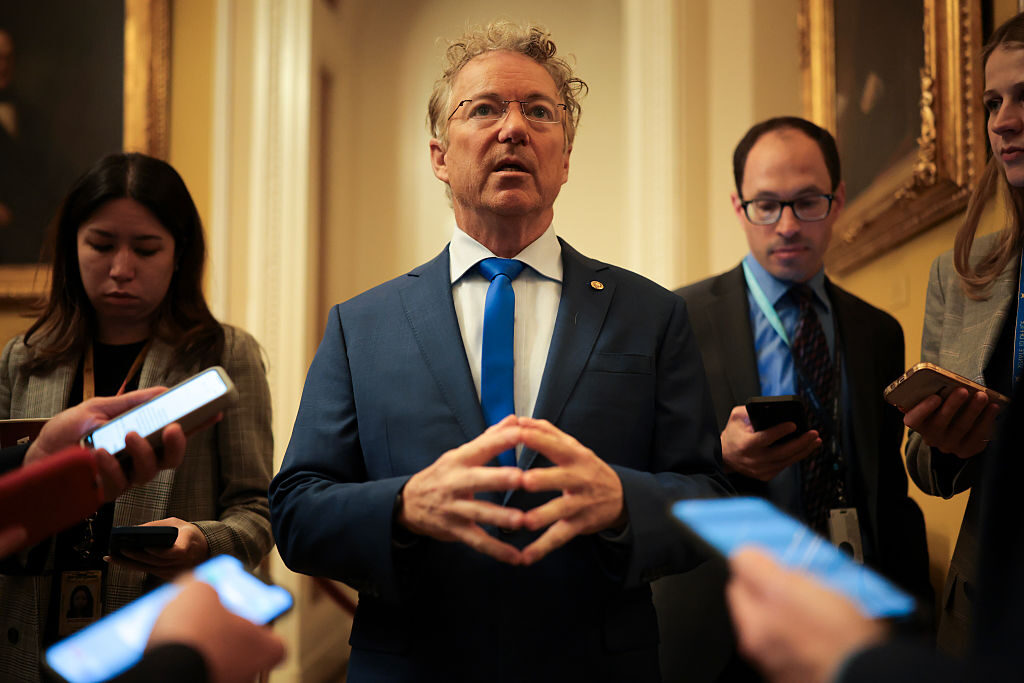“Taxation without representation is tyranny,” bellowed James Otis in the days and weeks and years leading up to the American Revolution. This became the rallying cry of American patriots: no taxation without representation. The American patriots thought that a distant parliament in England where they had no representation had no right to tax them.
This was the rallying cry: no taxation without representation. Our Founding Fathers believed so strongly in this that they embodied it in our Constitution. Our Constitution doesn’t allow any one man or woman to raise taxes. It must be the body of Congress. Now this wasn’t new. This was part of a 1,000-year tradition, from Magna Carta on. In Magna Carta, it is stated: no taxation without the common council of the realm. Even at that time, they were chafing at one man, the king, determining the taxes for the land.
One hundred years before our Revolutionary War, in the English Civil War, there was a debate over parliamentary supremacy versus supremacy of the king. They did not want to pay taxes that weren’t approved by the parliament. In 1683 the New York charter on liberties — the beginning charter for the colony of New York — stated no taxation without representation. After the English Civil War, the English Bill of Rights embodied this: no taxation without the consent of Parliament.
This principle was long-standing and non-negotiable. This was what sparked the revolution, and yet today we are here before the Senate because one person in our country wishes to raise taxes. Well, this is contrary to everything our country was founded upon. One person is not allowed to raise taxes. The Constitution forbids it. The Constitution was so concerned with the power of taxes, because the power of taxes is the power to destroy. But our Founding Fathers were so concerned with this that they said: “No, the President will not have the power to legislate. The President will not have the power to tax — only Congress will be able to tax the people.” And only by originating tax bills in the House. It was that specific.
They were so mortified and so worried by having a monarchy, and so worried about having all the power gravitate to the executive, that they said: we must split the powers. They based a lot of their thinking on Montesquieu. Montesquieu wrote in the 1740s — 40-50 years before our Constitution — that when the legislative and executive powers are united in one, there can be no liberty.
This is something that our Founding Fathers took to heart. They said: “we must separate the powers. We must, at all cost, limit the power of the presidency.”
This isn’t about political parties. I voted for and supported President Trump, but I don’t support the rule of one person. The President is set to have a 25% tax on goods coming from Canada and Mexico. This is a tax, plain and simple, on the American people. But one person can’t do that. Our Founding Fathers said: “No, that would be illegal for one person to raise taxes.”
It has to come to Congress. It has to originate in the House. This has gone on for 200-odd years. You can’t simply declare an emergency and say: “Well, the Constitution of the Republic was great; but gosh, we’ve got an emergency or times are dire.” The Supreme Court has repeatedly said there are no exemptions for emergencies. There was no exemption for a pandemic.
The taxation clause stands. It’s an important part of the Constitution. Taxes must originate in the House. They must be voted on in Congress. No one man can raise taxes on the people.
This piece is an excerpt from Rand Paul’s speech to the US Senate on Wednesday 2 April.










Join the discussion
Join like minded readers that support our journalism by becoming a paid subscriber
To join the discussion in the comments, become a paid subscriber.
Join like minded readers that support our journalism, read unlimited articles and enjoy other subscriber-only benefits.
Subscribe